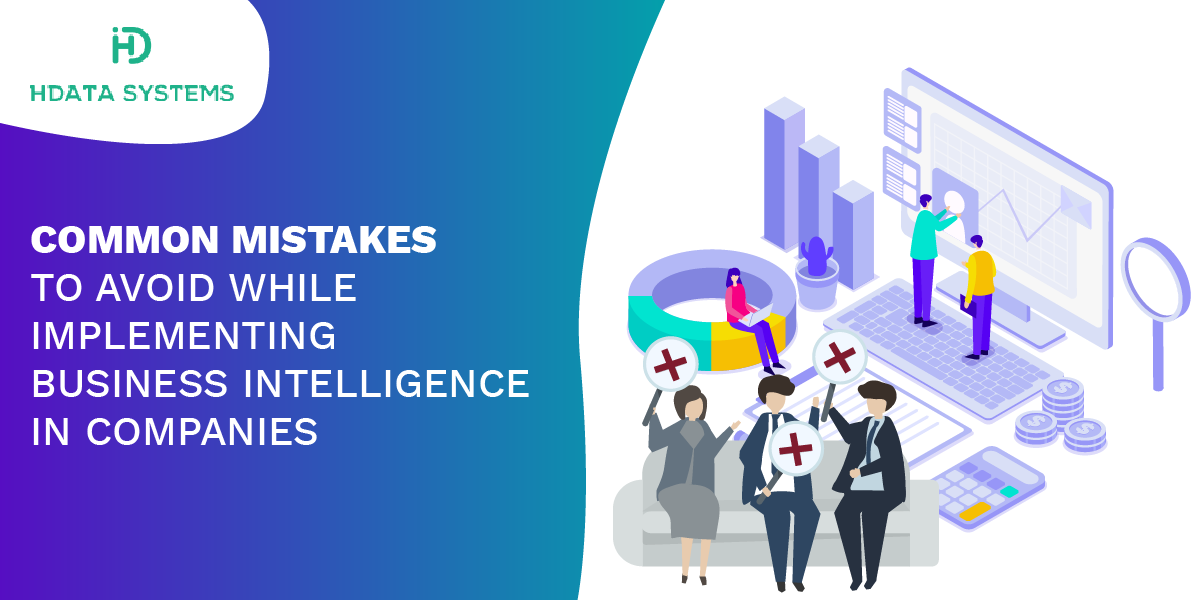Benefits of Business Intelligence In eCommerce
- 232
- September 26, 2022

The world of business intelligence, commonly as (BI), is applied in companies as a solution to the problems or possible unexpected errors that appear in the processes with the Digital Transformation.
But implementing BI in a business cannot generate the expected results if it is not applied well. In this post, you will know the most common errors when applying these processes in a company.
Errors when implementing BI in the company
In recent years, many data science companies have implemented business intelligence platforms, such as Pentaho, most acquired by IT departments. According to the consulting firm Gartner, these BI systems tend to be highly centralized, with reports produced by the department for a variety of analysts and more general users. Because of this, many BI platforms are underused and have proven to be a poor investment.
As a result, many companies seek to complement or even replace their existing business intelligence platforms in the coming months. For this reason, companies planning a BI investment need to know the most common mistakes to avoid to ensure that their investment is effective.
Business Intelligence project failures
BI projects are not as simple as we think, there is much more to planning and implementation. BI projects involve many moving parts and have many difficulties. These are the 5 most common BI mistakes that companies make:
1. Unclear BI strategy

Companies often jump into a BI implementation with minimal planning and a loose articulation of the project's intended goals. These companies are often guilty of:
• Having BI requirements dictated by the features they require or specific data elements for the data warehouse thinking that people will definitely use the system once it's done.
• Having a vague goal.
A successful BI plan is based on having a good BI strategy to guide you. Your goals should not only be clear but should be defined with questions or business analysis to answer. In addition, they must be accompanied by a comprehensive implementation plan that indicates how BI will be integrated into critical business processes and decisions to ensure its continued effectiveness.
2. Lack of acceptance of the interested parties
One of the essential parts of the BI plan is the acceptance of your stakeholders. Unfortunately, BI is seen by several business leaders as a technical project and, therefore, does not pay as much attention to it. Without acceptance, the project can be approved and implemented, but it will never be used to its full potential and, as a result, will not be delivered in accordance with the objectives.
Business leaders must agree on business goals and need a BI solution. They must also agree on the implementation plan and education plan to ensure the cooperation of key business users. Only then will BI be strategically leveraged to make critical business decisions, and agreed goals will be met.
3. Development of unfounded BI strategies
The success of a BI project also depends largely on the established foundations. Business leaders often step into BI benefits and jump into implementing it without the proper foundation.
Therefore, the best thing for the company is to ensure that it has a solid foundation, that is, good quality data. The benefits generated by BI will not manifest if the data being analyzed is outdated, inaccurate, or inconsistent. BI tools can only provide intelligence if you have good quality data. It is also important to have an adequate data governance system before proceeding with a BI implementation.
In addition to ensuring that the business has the basic data requirements, there is a need for business leaders to fully understand the BI, the complexities of implementation, and the risks associated with the initiative. You can meet with a business intelligence company for this.
4. Misconception that BI is about reporting

Taking Business Intelligence is as reporting is more than a wrong concept. Some companies are under the impression that the job of a BI tool is to spit reports as needed. In this case, the benefits of Business Intelligence are not used for its visualization or forecasting capacity, which is key to providing clear information in critical decision-making.
It is crucial that key BI users and business leaders are informed about the BI premise: Analyzing data to provide intelligence to a company to make strategic business decisions. Additionally, these stakeholders should be aware of the features and functions of the BI tool and how they can use data and analytics to gain insight.
5. Having poorly trained people on the team
Several companies make the mistake of leaving a BI project to people with little experience or little training in Business Intelligence. Although the business needs to have the experience of qualified people, it is impossible for a person without adequate training to really understand the needs of their business and the objective of their BI implementation.
For a successful BI implementation, a company needs the right people, with a team made up of a technical data expert, a business user, and a strategic advisor, as each of them will contribute the knowledge and skills to build a BI strategy.
For a project as complex as BI, these errors occur. But the good news is that these mistakes can be avoided, especially if you have experts in implementing this technology. A successful BI project not only generates high economic benefits but can also provide a strong competitive advantage.
Hyperlink InfoSystem is one of the leading software development companies based in India and has offices in USA, UK, UAE, France, and Canada. With 10+ years of experience in the industry, Hyperlink InfoSystem served more than 2,300 clients worldwide. The company has a team of 450+ highly skilled developers who works on any custom solutions using the latest technologies.